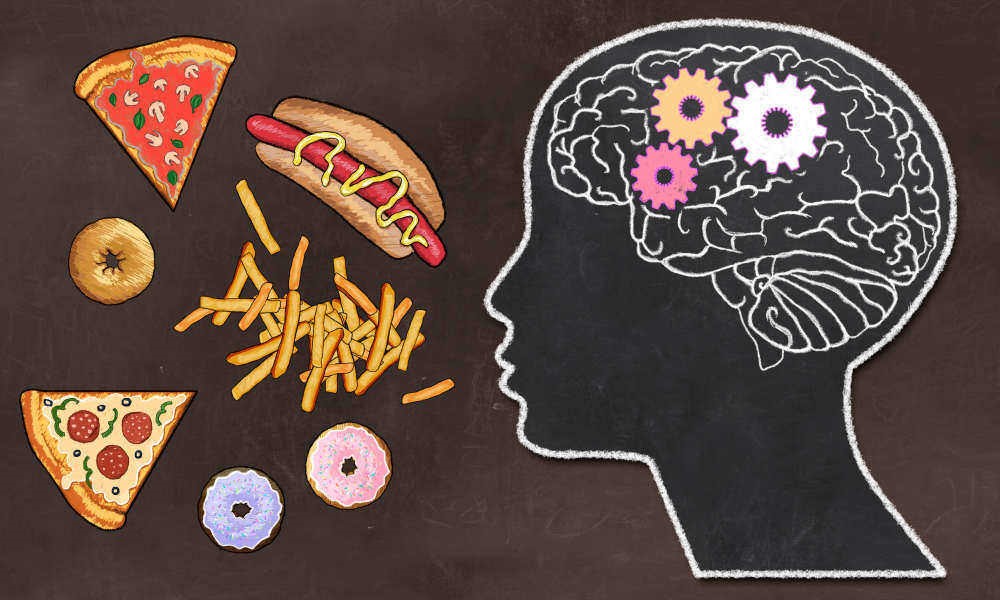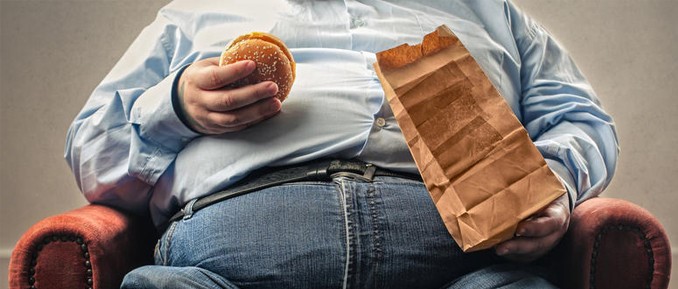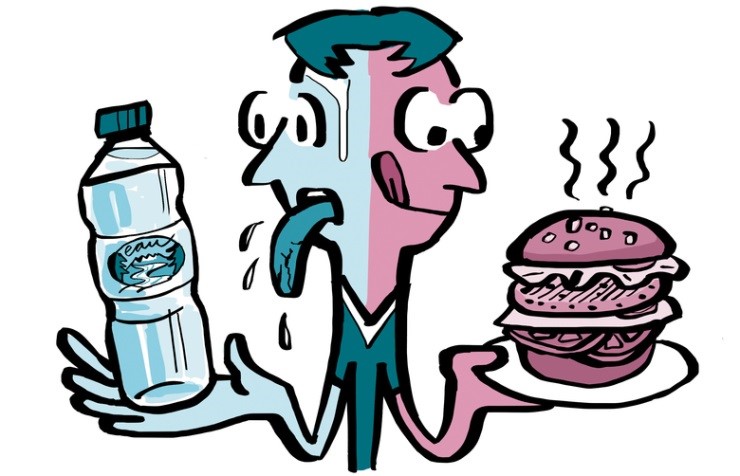Understanding What (B.E.D.) Binge Eating Disorder Is?
Most of the time, we often find ourselves eating more than we usually do. But if you are overrating every day, without having control and feeling helpless to stop it, then you are more likely to be suffering from binge eating disorder. To put it simply, binge eating disorder is when you eat more than usual in greater amounts and simultaneously feeling incapable of stopping yourself from eating. It is also followed by a constant feeling of discomfort during or after you’ve eaten.
Normally, binge eating disorder becomes evident during late adolescence or entering into adulthood, mainly after completing some diet. Suffering from binge eating calls for eating at irregular times even though you aren’t hungry, and you often continue to eat despite being full. You might find binge eating very calming for some time, which helps to comfort your hostile feelings like depression, stress, or anxiety. But, it’s not long when a feeling of self-criticism and regret starts to kick in.
Eating irregularly and excessive amounts results in extra obesity and weight gain, leading to more irregular eating patterns. What happens is that the more you feel bad about yourself, the more you eat to deal with such negative emotions. It gradually turns into a never-ending cycle that starts from eating for comfort, feeling even worse about you, and then going back to eating for consolation.
You might feel hopeless about your whole situation, but you can learn to overcome and control it. You can eventually learn how to break this cycle, manage your feelings and start to practice a healthy eating routine.
Factors That Lead To Binge Eating
Commonly, there’s no single factor leading to binge eating disorder. It might be an amalgamation of different aspects resulting in such a disorder.
Genetic Factors:
Individuals suffering from binge eating may have developed an increased level of dopamine. Dopamine is a chemical in your brain which stimulates emotions of desire and rewarding. It is strongly believed that this factor might be transferred to the offspring.
Gender:
Binge eating disorder is most widely seen in women as compared to men. 3.6% of women in the U.S. were reported to have B.E.D., while 2% of men only. This might be because of some core biological aspects.
Change In Brain Functioning:
People having ups and downs in their bran structure might suffer from B.E.D., which leads one to eat excessively and have reduced self-control.
Excessive Body Weight :
Nearly 50% of individuals who have B.E.D. are overweight, and many patients coming for weight reducing surgeries already suffer from binge eating disorder. Weight issues can be a source and the outcome of B.E.D.
Emotional Suffering:
Disturbing life situations like the death of a loved one, physical abuse, or accident might be the triggering factors. Bullying during childhood due to being overweight can be one of the reasons for B.E.D.
Prompting Symptoms of Binge Eating Disorder
Behavioral and Emotional Symptoms:
Feeling uneasy and restless to eat in front of others.
Following any new meal routine or fad diets, excluding whole food groups like eating no dairy, vegetables, or carbohydrates.
Might store food items in odd places.
Making such as daily routine to take out time for binge eating.
Avoiding meeting friends and refraining from healthy activities.
Dieting more often.
Being too much concerned with weight and body image.
Checking your body in front of the mirror again and again for imperfections in the body.
Feeling powerless to control extra eating. One might develop a secret session of binge eating daily, including eating in much larger portions than a normal person would usually eat.
Having a disturbed eating routine, which includes eating the entire day and having no planned eating schedule. A person may start to skip meals, take a small amount of food, or practice intermittent fasting or repeated diet plans.
Sticking to one kind of food group or meals and, for instance, stocking up on dairy products only.
Eating in isolation to save oneself from embarrassment due to the larger quantity of food consumption.
Feeling depressed, guilty, and hatred after eating too much.
Feeling discouraged and not worthy enough.
Physical Indicators:
Experiencing weight instabilities; being both under and overweight.
Having stomach issues like cramps, acidity, and constipation.
Facing difficulty in concentrating.
How Binge Eating Disorder Affects Your Health And Overall Life?
Binge eating has numerous physical and emotional outcomes. Right after binge eating, emotions of regret, hatred, shame, and anxiety start to arouse. It is followed by physical distress and stomach problems caused by unnecessary food consumption and creates problems digesting it. You might also feel tired and exhausted more often. Sticking to binge eating for months or years creates constant worry, anger, depression, and loneliness.
As you start to recover from B.E.D., you might be socially isolated throughout the whole process. A feeling of constant shame follows this disorder; that’s why it’s better to isolate yourself for a while.
Moreover, the most serious outcome of overrating is gaining weight and sometimes obesity. Some individuals may maintain their usual weight, but most people who binge eat extreme gain weight, leading to many medical complexities. Diseases like high cholesterol, high blood pressure, diabetes, and heart issues are common to overweight people.
Apart from this, a person having a normal weight during binge eating also suffers from different health problems. A stigma often follows this disease where an individual having B.E.D. might not get himself treated with the feeling that they aren’t underweight or sick for getting treatment. Such stereotypes lead a person to suffer silently for a long time before getting help.
Binge eating disorder disturbs a person’s career, social life, and personal relations to a great extent. A person suffering from B.E.D. might feel uneasy about performing normal routine activities because of the condition’s intensity.
How to Overcome Binge Eating?
1. Don’t Skip Meals
Making a daily eating plan and adhering to it regularly is possibly one of the most helpful ways of overcoming B.E.D. When you skip meals, it leads to unnecessary cravings and overeating. Try to don’t starve yourself and avoid eating after large gaps of time. Make a plan which includes frequent ‘healthy’ meals and make sure you stick to it. According to a study, eating one huge meal during the entire day increases your blood sugar and escalates the hunger hormone greatly.
2. Create A Food And Mood Journal
The most efficient ways to recognize the reasons for binge eating are that you note them down in a food and mood journal. So, each time you eat too much or feel the urge to reach out for your comfort food, take a pause and examine what is triggering this urge. If you back off, you will mostly discover a disturbing event that led to this binge. Write everything in your diary; what you want to eat, what you ate, and how you felt before and after eating. Gradually you will see to see a change.
3. Know The Difference Between Hunger And Thirst
If you feel hungry, try to take a glass of water first. If the feelings diminish, you were thirsty, actually. But if you still feel the hunger, take a healthy snack or meal. Interestingly, you can check whether you’re taking enough water or not by checking your urine color. Clear or light yellow shows that you are hydrated.
4. Take Your Cravings Under Control
Sometimes the feelings of binge eating come without any warning. And if you seem to be powerless to control the urge, there are some things you can practice to keep everything under control. Try distracting and diverting yourself in a different activity; go for a stroll, call someone or watch something interesting. Once you get busy doing something, the feel of binge might disappear.
Moreover, talking to a close friend or a family member might also help. Sharing your thought with someone may help to feel better and lessen the desire to eat. Delaying the binge will help greatly to avoid it. Try to delay it for one minute and if you are successful, do this for five minutes. And eventually, postponing it for a long time will make you stay away from binging.
5. Practice To Indulge You’re In Healthy Lifestyle Practices.
When you are physically fit, calm and satisfied, you are more likely to handle your binge eating. Doing physical exercises will help improve your mood and energy and is great for reducing stress levels. Also, if you are not getting enough sleep, it may lead to binge eating. Getting enough sleep will help to control appetite, lessen cravings and stabilize your mood. Mediating or practicing breathing exercising is quite effective in treating your unnecessary cravings.
Conclusion:
Binge eating disorder might disturb your life and health, but you can strive to treat it if you are committed and motivated. Maintaining a healthy lifestyle and practicing mindful eating can greatly help you manage your extra urges to eat. If B.E.D. It gets severe; it is suggested that you should see a doctor.










